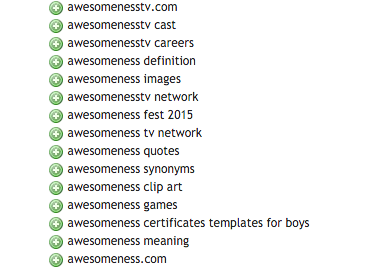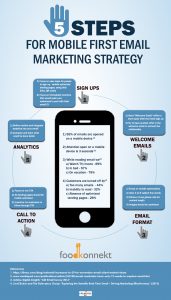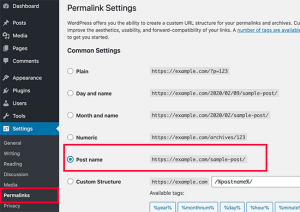
Blogging – do you love it or do you love it? For those converted to the church of blogging, you can’t deny the results it can generate for your business, 24 hours a day, 7 days a week. A blog post is part of the marketing automation universe in that sense – as long as people are on search engines, looking for solutions to their pain points, blog posts need to exist in order to draw them to the right websites. And as long as you are looking to optimise for Google, you have to constantly consider the quality signals your website is giving the search giant.
A lot of companies still make the fatal mistake of confusing blogging with posting updates about their product. This is a no-no. If you have a designated blog for product updates and “how-tos”, go right ahead! But that can’t be your core business blog. That, my friend, has to reach those who’ve barely heard of you and need convincing that you’re the right provider of a solution for them (i.e. the vast majority of your website visitors). And in order to develop a better quality signal to search engines, you have to create the right content for your visitors – and this content is most likely going to benefit from the support of a blog behind it.
How can a blog support the rest of my website and my business?
A blog gives both “hard” and “soft” return on investment.
- it generates traffic
- it generates prospects >> have a “subscribe to the blog” option to gather email addresses
- it helps convert these prospects all the way down the sales and marketing funnel
- it establishes your business’s authority on a subject – this is important a) for Google ranking and b) convincing visitors your business can solve their pain point
- it is a forum for visitors to ask questions and have discussions
- it gives a place for others to link back to, thus boosting your website authority in search engines and improving your reputation
- it gives people something to share on social networks
- it gives YOU something to share on social networks – nobody wants to see a brand only sharing their product all the time
- it humanises the company, literally putting a face to the name – trust is priceless in business
- it can give you the competitive advantage
Jumping in: the 5 main types of blog posts
The typical business blog post is one of these five formats:
- The How-To Post
- The List-Based Post
- The Curated Collection Post
- The SlideShare Presentation Post
- The Newsjacking Post
But wait! What is the Number One thing you have to do before typing a letter? Identify your audience.
Your blogging will be wasted if you are not a) writing up solutions to your potential and returning visitors’ problems, and b) writing it in style that reflects your audience. Luckily, there are a ton of free resources out there to get you started on your research to write the best, most targeted blog posts you possibly can!
A final important note is to remember not to begin your blogging ideas research by brainstorming first. Begin with learning the language your audience is using – just to make sure you’re building the most successful base possible for the business. Assumptions can kill.
Here’s a blueprint for how to write the perfect blog post:

11 free tools to help you identify and understand your blog audience
Yes you’ve waited long enough and here are your free blogging tools:
1. InboundRank
InboundRank is a ranking of the top blogs in the UK and Ireland. What is key about using this tool to identify your competitors is that it specifically ranks blogs. You can spend hours and hours searching your competitors only to find they don’t have a blog at all! And everyone needs a place to start. With InboundRank, you can take a look at the best blogs in the business, and start to understand the layout of popular blogs, as well as the quality and quantity of posts. You’ll get an idea of their writing style and start to develop a base of “best practices” that will get you started.

2. Alexa
Now that you have a selection of competitor blog URLs, take them and drop them into Alexa Rank. Scroll down and take notes on the general demographic trends. Is the data more or less similar? If so, you have the right pool of URLs to compare to. This is important in order to reach “data saturation” (sufficient data from a correct sample group). If they are all wildly different, you may want to double-check that they are definitely a competitor for your company.

3. Similar Web
SimilarWeb is – ironically – for a similar purpose here. This tool will give you a broad overview of audience interests of your competitor blogs, as well as a wordcloud of topics of interest. SimilarWeb provides plenty of useful information but for the purposes of designing a blog research process, I’ll stick to this particular piece of data!

Another thing you want to double-check (because I like to check via more than one source!) is the backlink quality of the blogs you’ve selected to base yourself off of. It’s also a great way of starting to get more granular in your understanding of the audiences these blogs attract. People who respect those blogs, and who are interested in in the subject material (i.e. potential leads!), will be linking back to them. You’ll start to get a real view of the kind of networks you are dealing with, potential future co-marketing partners, and more.

5. SEM rush
Similar to Open Site Explorer, this is a resource to discover backlinks and their quality, and the type of places that are linking back to the content of your competitor blogs. Do take the data with a grain of salt, however; not every backlink will be relevant. You will start to recognise the links that do and do not matter to your business goals. Use this in combination with Open Site Explorer to refine your hitlist of backlinks that you will want to work with in the future.

6. AHREFS
Ahrefs is a great free tool to discover what content from the blogs is the most successful, and on which channel you can focus on. Buzzsumo is very similar, but you may or may not be up for the paid plan 🙂 In Ahrefs, you can search by domain OR by keyword, and gather plenty of intel on what your blogging strategy should entail. You will also start to really get a feeling for the writing style that works for your audience.

SocialMention allows you to iterate your blogging strategy one step further by seeing where and by whom content from a blog is being shared. You can identify forums where your audience resides, and start to gather some broad keyword categories to inform your future blog topic choices.

I love SImplyMeasured but it’s limitation is that if your audience is not on Twitter… well, you get the idea. Now, many digital marketers hope to find at least some of their target audience there – but just be aware that some industries and demographics will be less represented.

This is when you finally begin to create your target persona. And don’t limit yourself to just one! There are always going to be multiple. I would recommend no more than 3 to start off as writing for three different personas is challenge enough. Use this Word Doc generator to get your first notes on your target blog audience in order before taking it to the next level.

10. Buyer persona template and interview template
This downloadable template and interview guide is more advanced and will set up a solid foundation for your blogging strategy. Because after all – you are writing so that ultimately your company will grow! The buyer persona and the target audience for your blog are one and the same. Take the time to complete this carefully, and use it as your manual for blogging success.

11. UberSuggest
….and finally, some keyword brainstorming at last! This is a fantastic tool to give you long-tail suggestions on what you could be writing about. Never start blogging trying to rank for single words or 2-word phrases. The competition is crazy. Go for longer search terms and build your authority from there.

What are your favourite blogging tips? Please let us know in the comments below!
Digital & Social Articles on Business 2 Community(105)








